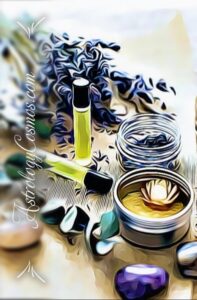Last Updated on January 13, 2023 by Cassandra Nostredame
You are interested in supporting the health of those around you through the natural skill of herbalism. This may have caused you to consider various questions, such as how do you go about becoming an herbalist. Similarly, you may be interested in learning about what makes someone an herbalist as opposed to a herbologist. Likewise, taking the time to understand common herbs around you will bring you many benefits. You may even find that we will address some questions that may pique your interest in a particular field of herbalism or herbology.
Should you discover that you are interested in reading our eclectic collection of miscellaneous topics, we invite you to learn about the wide variety of subjects that we have touched upon here at Astrology Cosmos.
How Can I Become an Herbalist?
If you want to learn about herbal medicine, then there are many routes that you can choose from. For some, studying to become a herbalist be done by studying under someone who is trained in the medical qualities of herbs or going through a specific program that is designed for an academic setting. Of course, you may find that you are called into the wild yourself, though this may be dangerous for individuals who are novices when it comes to plant identification. Because of this, you may decide that your best option is to learn about where you can study to become an herbalist.
Herbalist courses are beneficial for all individuals, even those who may not be interested in looking for a career in this field. You may simply be interested in learning about the subject, as knowledge itself is objectively helpful, especially when it comes to understanding the world around you. Similarly, we are aware that financial stresses may cause you to be interested in searching for something that is more within your price range. Take this opportunity to determine if The Herbal Academy's free course may be something that you are interested in signing up for.
How Can I Become an Herbologist?
It is possible that you are interested in learning what is the difference between an herbalist and an herbologist, and you should take every opportunity to understand your interests. You may find that you are more interested in the hard sciences, such as biology or botany. Others may find that they are more interested in the applied sciences, such as something in the research or medical fields. For this reason, you may want to read more about how a degree in health science applies to herbology.
There are many available options for you to choose from, and you should decide which route may be best for you. If you are an individual who finds that a university setting suits them best, you may be interested in studying in an academic career. Because of the various applicable fields that are available to you, you should take this time to figure out what may work best for you. You will find that what you major in at university will shape the future of your career.
How Can I Understand Herbs Themselves?
Should you be interested in learning more about herbs here, then we are able to provide you with various information that will help spark your interest in herbalism and herbology. Plants have been used for their medicinal properties in every culture throughout history, and you will find that there are always more herbs that you can learn about. There may be a plant that is extremely important to you and to your life. Some people may feel that they are drawn to a particular herb, as some people feel that they are connected to a certain animal. If this describes you, then you should learn everything that you can about that particular plant, as this will help shape and guide your understanding of the natural world.
As you explore the subject, you may feel that you are interested in learning about the most famous, useful, or powerful herbs. This may influence you to want to learn about which herbs are the best. While there is no objective measure in regard to such concepts, it is certain that there are ancient plants that have many uses to people throughout the world. By increasing your understanding of how plants are categorized, harvested, and applied, you will be on your way to becoming a master in regard to herbal medicine.
What Are Some Specific Herbs?
You may be an individual who is not only interested in the medicinal aspects of herbs but also the psychological influences that they can have on us. Additionally, some herbs may have an impact on our state of mind during our dreams. According to many herbalists, kava kava is an excellent herb, which is used for insomnia, stress, anxiety, and depression. For those who are interested in lucid dreaming, kava kava is known for providing people with an awareness that allows them to interact with and to control their dreams.
Depending on the laws of the country that you live in, you may be someone who is interested in cannabis consumption. The herb itself is used for many medical illnesses, and it has been used throughout history for treating people who are suffering from all types of ailments. Like all herbs, cannabis may be concentration, which may not be true herbalism, but rather the application of chemistry to biology. If applied science interests you, then you may want to learn more about CBD isolate. These isolates may be used as lotions, topical creams, or various other medicinal ointments. Find what works best for you and for those that you care for, and you may find that you will reduce the pain and suffering of many people in your life.
Infusions and Decoctions
As an herbalist, you may be called upon to create infusions and decoctions. In ancient times, these may have been described as potions or elixirs. There are other things that may be made as well, such as salves or balms. Modern chemists use plants and herbs to create medicines as well. You may find that this subject piques your interest. If this is the case, then you may want to learn about how infusions and decoctions differ. Keep in mind that there is no limit to what you can learn, whether you are interested in following traditional or modern techniques.




